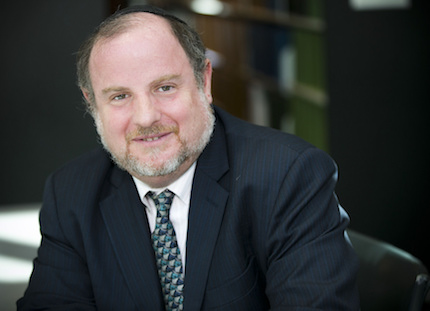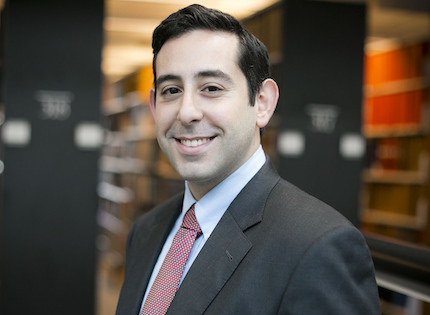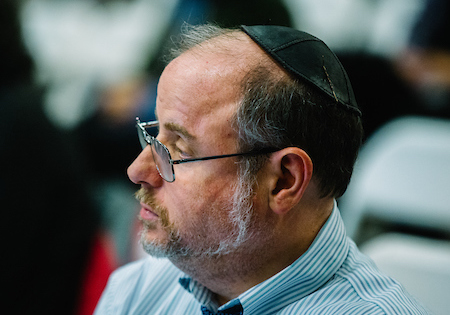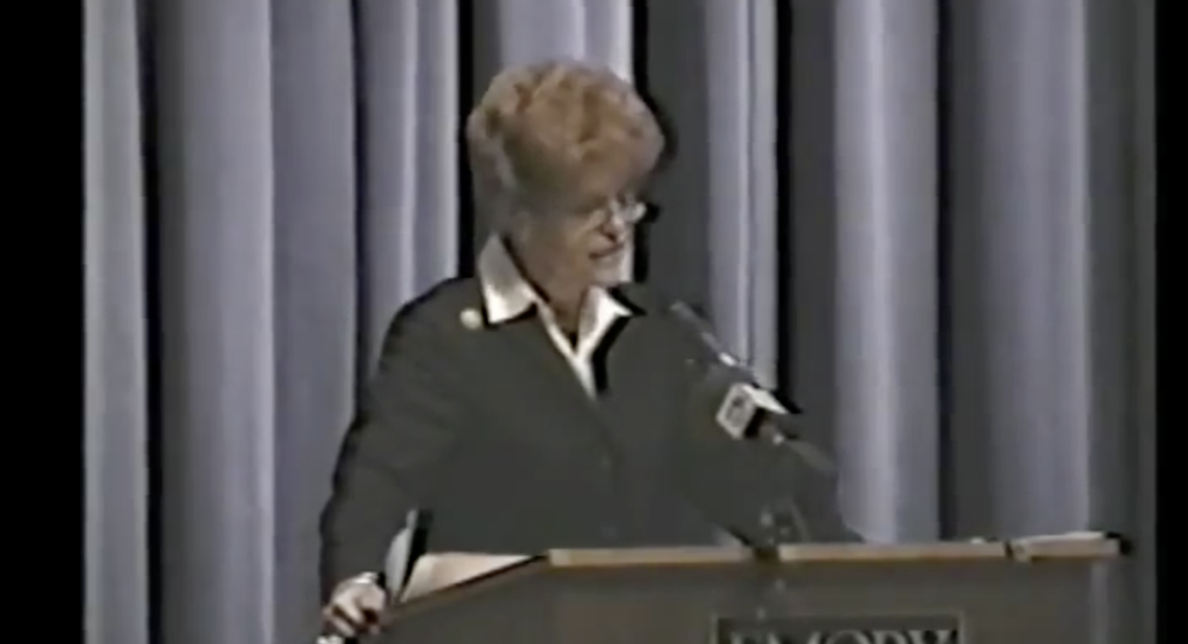Law and Judaism
Judaism is a religious tradition steeped in law. It embraces a robust legal system that continues to deliberate and adjudicate questions for the Jewish community through an ongoing rabbinic dialogue that has lasted thousands of years. Jewish religious tribunals operate within secular states around the world, negotiating a space within secular law for a religious legal system.
The Law and Judaism focus area addresses historical and contemporary texts on Jewish law, theology, and ethics as well as modern issues of marriage and family and the role of religious legal systems in modern liberal democracies. For more than 25 years, the Center's research projects have explored Jewish contributions to human rights, the pursuit of happiness, Holocaust denial, and bioethics. These projects and Center faculty and fellows have produced dozens of books on Jewish law issues and the contributions of Jewish thought to contemporary social, political, and bioethical issues. The Center now edits the new Cambridge Series on Law and Judaism, which will create and disseminate innovative new scholarship.
Leadership
Director: Michael J. Broyde
Deputy Director: Schlomo C. Pill
Affiliated Fellows:
Elisha S. Ancselovits, Lee Ann Bambach, Michael S. Berger, David R. Blumenthal, Joseph David, Mark A. Goldfeder, Deborah E. Lipstadt, Gideon Sapir, Jacob L. Wright
Lectures
Law and Religion in a Jewish State
Shahar Lifshitz, Dean of Bar-Ilan University and Senior Research Fellow at the Israel Democracy Institute, delivered the 2018 Restoring Religious Freedom lecture: Power and Faith: Law and Religion in a Jewish State.Religious Courts and the Rule of Law
Michael J. Broyde delivered a lecture at Stanford University School of Law titled, Religious Courts and the Rule of Law: Friend or Foe?Holocaust Denial, Theological Reflections
In this 1990 lecture, Deborah Lipstadt, Dorot Professor of Modern Jewish and Holocaust Studies at Emory University, and Norman Lamm, President Emeritus of Yeshiva University, speak about the libel trial brought against Lipstadt by British author David Irving and reparation for Holocaust survivors.News

Broyde wins Fulbright
Michael J. Broyde has won a Fulbright Senior Scholar Fellowship. He will spend the 2018-2019 school year at Hebrew University in Israel, studying religious arbitration in diverse western democracies. His project focuses on regulating religious communities in ways that encourage modernization and discourage radicalization. He will address one of the most serious challenges confronting every Western democracy: preventing the rise of radical religion.
First book in Goldfeder-edited series released
Cambridge University Press will publish in December 2017 the first title in its Law and Judaism series, which is edited by Mark Goldfeder. The Jewish Family: Between Family Law and Contract Law by Yehezkel Margalit of Netanya Academic College examines the tenets of Jewish family law in light of new attitudes concerning the role of women, assisted reproduction technologies, and prenuptial agreements.
Broyde lectures in Poland, Austria
Michael J. Broyde lectured in Austria and Poland this summer, experiences that highlighted the differences between the two countries regarding divorce, diversity, and, the subject of his most recent book, arbitration. In Vienna, he spoke about Sharia tribunals and New York’s regulation of religious marriage. In Bialystok, Broyde gave a lecture entitled, “Why liberal societies ought to encourage, but regulate, Christian, Jewish, and Islamic religious courts in the area of family law.”
Publications
Sharia Tribunals, Rabbinical Courts, and Christian Panels: Religious Arbitration in America and the West (Oxford, 2017), Michael J. Broyde
A Concise Code of Jewish Law for Converts (Urim Publications, 2017), Michael J.Broyde
The Codification of Jewish Law and an Introduction to the Jurisprudence of the Mishna Berura (Academic Studies P, 2014), Michael J. Broyde and Ira Bedzow, eds.
Muslim dan Keadilan Global (IMR Press, 2013), Abdullahi Ahmed An-Na’im
Contending with Catastrophe: Jewish Perspectives on September 11th (Beth Din of America P and K’hal Publishing, 2011), Michael J. Broyde
Innovation in Jewish Law: A Case Study of Chiddush in Havineinu (Urim Publications, 2010), Michael J. Broyde
The Pursuit of Justice and Jewish Law: Halakhic Perspectives on the Legal Profession. 2nd ed. (Yashar Books, 2007), Michael J. Broyde
Religious Liberty in the State of Israel, Emory International Law Review, Vol. 21(2007): 239-276, Natan Lerner
Marriage, Sex, and Family in Judaism (Rowman & Littlefield Publishers, 2005), Michael J. Broyde
Marriage, Divorce, and the Abandoned Wife in Jewish Law: A Conceptual Understanding of the Agunah Problems in America (Ktav Publishing House, 2001), Michael J. Broyde
Assisted Reproduction and Jewish Law (Dept. of Judaic Studies, University of Cincinnati, 1999), Michael J. Broyde
The Pursuit of Justice and Jewish Law: Halakhic Perspectives on the Legal Profession (Yeshiva University, 1996), Michael J. Broyde




